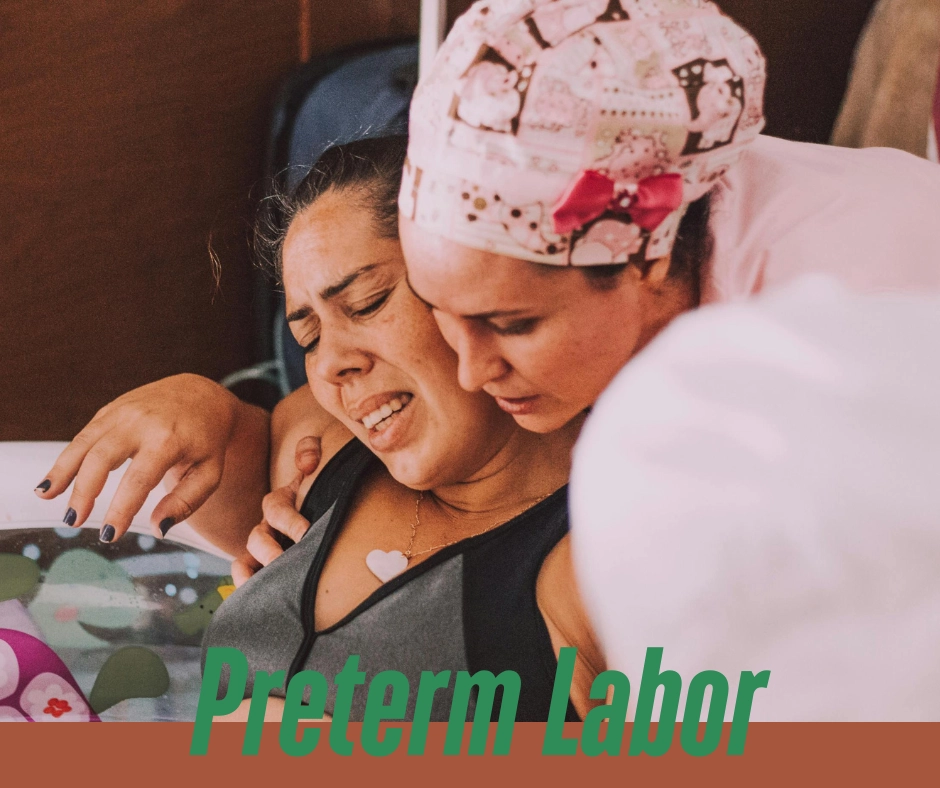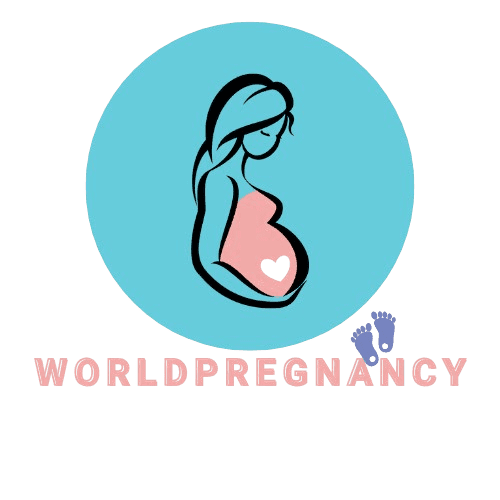A Guide to a Healthy Pregnancy
Learn about common pregnancy risks, causes, and preventive measures—essential information and tips for a healthy pregnancy journey.
What are the potential risks and common problems of pregnancy? How can you reduce these risks? Learn more in this informative blog post. Essential tips, preventive measures, and frequently asked questions for expectant mothers and women planning a pregnancy.

Introduction:
Pregnancy is a very joyful time in a woman’s life, but it also comes with some health risks. Pregnant women face various challenges due to physical and mental changes. It is very important for those who are planning to conceive or are pregnant to know about the possible risks of pregnancy and take the necessary preventive measures. In this blog post, we will discuss in detail the common risks of pregnancy, their causes, symptoms, and ways to prevent them.
What are pregnancy risks?
Pregnancy risks refer to conditions or factors that can complicate pregnancy, which can affect the health of the mother, the baby, or both. These risks can arise from pre-existing health conditions, lifestyle factors, infection,s or pregnancy complications. By identifying and addressing these risks early, you can take proactive steps to ensure a safe and healthy pregnancy.
Common Pregnancy Risks and Preventive Measures

1. High Blood Pressure:
Problem:
- High blood pressure during pregnancy can cause serious problems and can lead to preeclampsia.
Possible causes:
- Previous high blood pressure problems
- Obesity
- Stress
Preventive measures:
- Check your blood pressure regularly.
- Eat a healthy diet low in salt.
- Practice meditation and yoga to reduce stress.
- Drink plenty of water.
2. Gestational Diabetes:
Problem:
- This type of diabetes occurs only during pregnancy and can cause the baby to gain excess weight.
Possible causes:
- Obesity
- Family history of diabetes
- Irregular eating habits
Preventive measures:
- Avoid sugary and high-calorie foods.
- Follow the diet as advised by the doctor.
- Exercise regularly.
3. Pregnancy Infections:
Problem:
- Various viral or bacterial infections can be harmful to the mother and baby.
Possible causes:
- Unhealthy eating habits
- Drinking contaminated water
- Unclean environment
Preventive measures:
- Develop the habit of washing hands regularly.
- Eat safe food.
- Take necessary vaccinations as per the doctor’s advice.
4. Miscarriage & Stillbirth:
Problem:
- Various health problems and lifestyle can lead to miscarriage or stillbirth.
Possible causes:
- Smoking and drinking
- Excessive stress
- Hormonal problems
Preventive measures:
- Avoid smoking and drinking completely.
- Get enough rest.
- Practice meditation and relaxation to reduce stress.

5. Preterm Labor:
Problem:
- If labor begins before 37 weeks, it is considered premature labor. This can be risky for the baby’s health.
Possible causes:
- History of previous premature labor
- Infection of the uterus
- Excessive physical exertion
Preventive measures:
- Follow the doctor’s instructions.
- Get enough rest.
- Go for regular checkups during pregnancy.
6. Mental Health Problems (Depression and Anxiety)
Problem:
- Stress, anxiety, or depression may occur due to hormonal changes during pregnancy.
Solution:
- Enlist the support of family and friends.
- Get regular light exercise.
- Seek counseling or therapy if necessary.
Ways to reduce pregnancy risks
- Regular prenatal checkups
Seek regular doctor’s advice during pregnancy and get the necessary tests done.
- Healthy diet
Eat foods rich in fruits, vegetables, whole grains, and lean protein.
- Regular exercise
Walk, swim, or do prenatal yoga.
- Quit harmful habits
Avoid smoking, drinking, and drugs.
- Stress management
You can reduce stress through meditation, deep breathing, or journaling.
- Adequate rest
Sleep for 7-8 hours every day and rest.
Frequently Asked Questions (FAQ):
1. How to control high blood pressure during pregnancy?
To control high blood pressure, it is important to follow a healthy diet, exercise regularly, and get enough rest.
1. Regular Prenatal Checkups
- Monitor your blood pressure frequently.
- Follow your doctor’s recommendations and prescribe medications if needed.
2. Maintain a Healthy Diet
- Eat a balanced diet rich in fruits, vegetables, and whole grains.
- Reduce salt intake to prevent fluid retention and high blood pressure.
- Avoid processed and high-sodium foods.
- Increase potassium-rich foods like bananas, spinach, and sweet potatoes.
3. Stay Hydrated
- Drink plenty of water to maintain proper circulation.
- Limit caffeine intake as it can raise blood pressure.
4. Exercise Regularly
- Engage in light physical activities like walking, prenatal yoga, or swimming.
- Avoid high-intensity workouts without consulting your doctor.
5. Manage Stress Levels
- Practice relaxation techniques such as meditation, deep breathing, or prenatal massage.
- Ensure adequate rest and sleep.
6. Avoid Harmful Substances
- Completely avoid smoking, alcohol, and any non-prescribed medications.
7. Follow Medication Guidelines
- If your doctor prescribes medication, take it as directed.
- Do not take over-the-counter medicines without consulting a healthcare provider.
8. Monitor Weight Gain
- Maintain a healthy pregnancy weight to reduce pressure on the heart.
- Follow a balanced meal plan approved by your doctor.
2. Is normal delivery possible with gestational diabetes?
Yes, normal delivery (vaginal birth) is possible for women with gestational diabetes (GDM), but it depends on how well the condition is managed and if there are any complications. Here are some key factors that influence a safe vaginal birth:
1. Blood Sugar Control
- If blood sugar levels are well-controlled through diet, exercise, or medication, the chances of a normal delivery increase.
- Poorly controlled diabetes may lead to complications requiring a C-section.
2. Baby’s Size (Macrosomia)
- Gestational diabetes can cause the baby to grow larger than normal (macrosomia), making vaginal delivery difficult.
- If the baby is too large, there may be a risk of shoulder dystocia (difficulty in delivery due to the baby’s shoulders being stuck).
3. Amniotic Fluid Levels
- High blood sugar can lead to excess amniotic fluid (polyhydramnios), which increases the risk of premature labor or complications during delivery.
4. Timing of Delivery
- Doctors may induce labor before 40 weeks if the baby is growing too large.
- If there are no complications, many women with GDM can carry their pregnancy to full term.
5. Monitoring During Labor
- Continuous fetal monitoring is done during labor to check the baby’s well-being.
- If any distress is detected, an emergency C-section may be required.
When is a C-Section Needed?
- Severely uncontrolled blood sugar
- Very large baby (risk of birth injuries)
- Fetal distress during labor
- High blood pressure or preeclampsia
3. Which foods should be avoided during pregnancy?
Foods to Avoid During Pregnancy
Proper nutrition is essential during pregnancy, as it directly impacts both the mother and the baby’s health. Certain foods can pose risks to the developing baby, increasing the chances of infections, complications, or nutrient imbalances. Here are some foods that should be avoided during pregnancy:
1. Raw or Undercooked Meat and Seafood
- Raw fish (e.g., sushi, sashimi)
- Undercooked poultry, beef, or pork
- Raw shellfish (e.g., oysters, clams, mussels)
- Risk: These can contain harmful bacteria or parasites like Salmonella, Listeria, or Toxoplasma, which may cause infections and complications.
2. Unpasteurized Dairy Products
- Raw milk and cheese made from unpasteurized milk (e.g., Brie, Feta, Camembert, blue cheese)
- Risk: Unpasteurized dairy may contain Listeria, which can lead to pregnancy complications or miscarriage.
3. Raw or Undercooked Eggs
- Raw or runny eggs (e.g., soft-boiled, poached eggs)
- Foods with raw eggs (e.g., homemade mayonnaise, raw cookie dough, hollandaise sauce)
- Risk: These can carry Salmonella, leading to food poisoning.
4. High-Mercury Fish
- Shark, swordfish, king mackerel, tilefish
- Risk: High mercury levels can harm the baby’s developing brain and nervous system.
5. Processed and Deli Meats
- Hot dogs, sausages, luncheon meats
- Risk: These can contain Listeria and preservatives that may be harmful to the baby. If consuming, heat them thoroughly before eating.
6. Caffeine in Excess
- Coffee, tea, energy drinks, sodas
- Risk: High caffeine intake may lead to low birth weight, preterm birth, or miscarriage. Limit intake to 200 mg per day (about one cup of coffee).
7. Alcohol
- Beer, wine, spirits, and any alcoholic beverages
- Risk: Alcohol consumption during pregnancy can cause Fetal Alcohol Syndrome (FAS), which affects brain development and can lead to birth defects.
8. Unwashed Fruits and Vegetables
- Unwashed raw vegetables and fruits
- Risk: They may contain pesticides, bacteria (Toxoplasma), or parasites, which can be harmful during pregnancy. Always wash them thoroughly before eating.
9. Artificial Sweeteners and Processed Junk Food
- Diet sodas, candies, processed fast food
- Risk: Excessive artificial sweeteners and processed foods provide little nutrition and may contribute to unhealthy weight gain or gestational diabetes.
10. Excessively Salty and Sugary Foods
- Packaged chips, pickles, sweets, and pastries
- Risk: High sodium increases blood pressure, while excess sugar can contribute to gestational diabetes and excessive weight gain.
Conclusion:
Although pregnancy is risky, it is possible to have a healthy and safe pregnancy with proper care and awareness. You can protect the health of you and your baby by living a healthy lifestyle, eating healthy foods, and taking regular medical advice. Enjoy every moment of pregnancy and stay healthy!

Nice topic this is very helpfully per pregnant women.